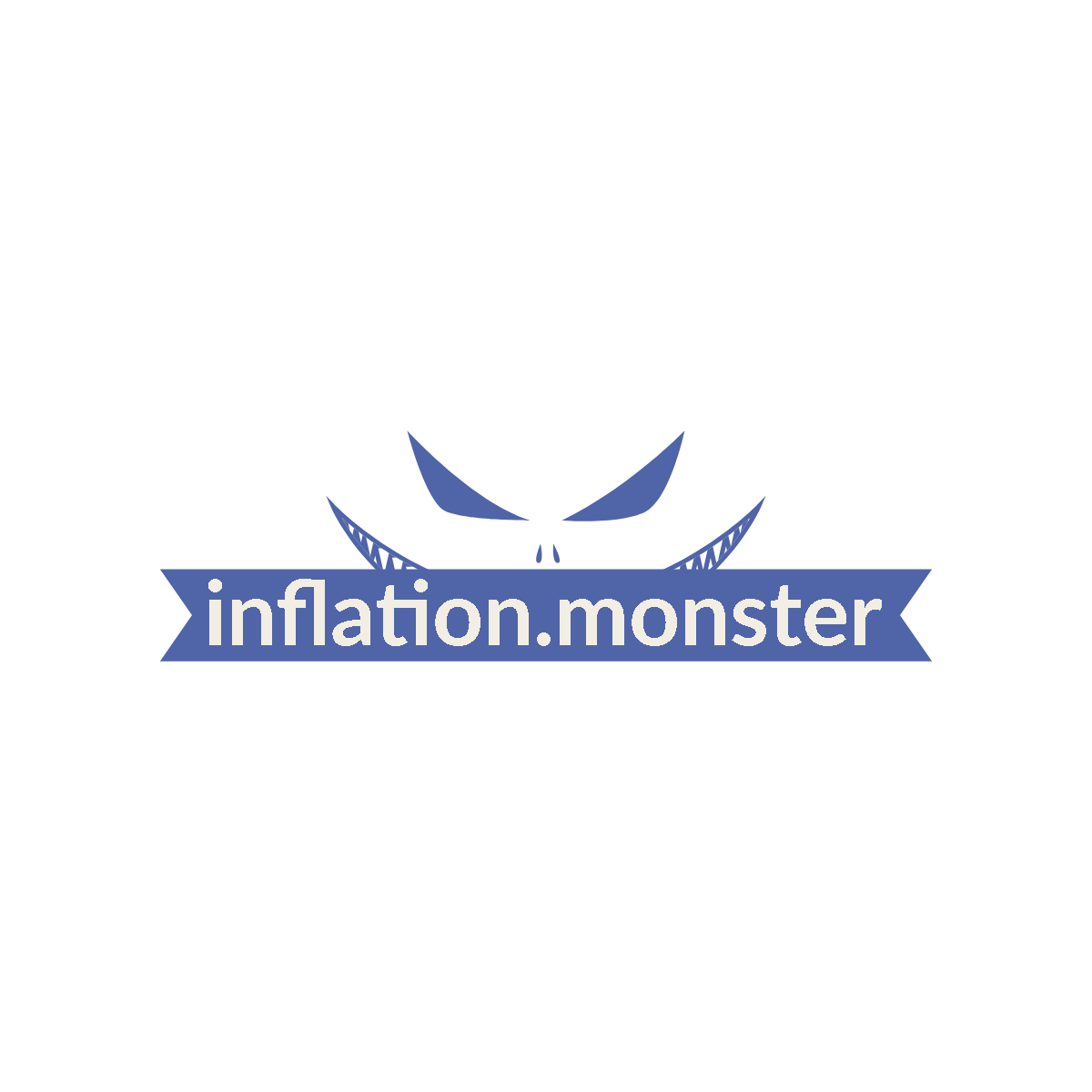Inflation and income inequality have been two persistent and interconnected issues that have plagued societies for ages. As the prices of goods and services continue to rise due to inflation, the gap between the rich and the poor widens, exacerbating the problem of income inequality. In this article, we explore the intricate relationship between inflation and income inequality, shedding light on how these forces shape the economic landscape and affect individuals’ financial well-being. By examining the various factors and consequences of these phenomena, we aim to provide you with a deeper understanding of the challenges posed by inflation and income inequality, and how they can be addressed for a more equitable society.

The Basics of Inflation
Inflation is a concept that is frequently discussed in economics and finance, but do we really understand what it means? Let’s break it down. In simple terms, inflation refers to the increase in the general price level of goods and services over a period of time. It means that as time goes on, the purchasing power of money decreases.
Definition of inflation
Inflation can be categorized as either demand-pull inflation or cost-push inflation. Demand-pull inflation occurs when there is an increase in aggregate demand for goods and services, leading to an increase in prices. On the other hand, cost-push inflation happens when the cost of production, such as wages or raw materials, increases, leading to higher prices.
Types of inflation
Inflation can also be classified based on its intensity. Mild inflation refers to a relatively low increase in prices, typically in the range of 1-3% per year. Moderate inflation is characterized by a moderate increase in prices, usually between 3-10% annually. Lastly, hyperinflation is an extreme form of inflation where there is a rapid and uncontrollable increase in prices, often leading to the collapse of a country’s currency.
Causes of inflation
There are several factors that can contribute to inflation. One common cause is excessive monetary growth, where the money supply increases at a faster rate than the growth of goods and services in the economy. This excess of money can result in more purchasing power, leading to an increase in prices. Additionally, changes in production costs, such as wages or raw materials, can also drive inflation. Other factors, such as changes in government policies or international trade, can also impact inflation rates.
The Relationship between Inflation and Income Inequality
Income inequality refers to the unequal distribution of income among individuals or households within a society. But how does inflation affect income inequality, and how does income inequality, in turn, impact inflation?
Effects of inflation on income inequality
Inflation can have both positive and negative effects on income inequality. On one hand, inflation can erode the purchasing power of low-income individuals who are already struggling to make ends meet. This means that the prices of basic necessities, such as food and housing, become relatively more expensive for them, further exacerbating income inequality. On the other hand, high-income individuals who own assets that can appreciate with inflation, such as real estate or stocks, may actually benefit from inflation and see their wealth increase.
How income inequality affects inflation
Income inequality can also impact inflation rates. When there is a large wealth gap between the rich and the poor, it can lead to decreased aggregate demand. This is because low-income individuals tend to have a higher marginal propensity to consume, meaning they spend a larger portion of their income. As a result, if their incomes are limited, they have less purchasing power to stimulate demand, which can then lead to lower inflation rates.

Inflation and Its Impact on Different Socioeconomic Groups
Inflation does not affect all socioeconomic groups equally. Let’s take a closer look at how inflation impacts different income groups and what the implications are.
The impact of inflation on low-income individuals
Low-income individuals are particularly vulnerable to the impacts of inflation. As mentioned earlier, inflation can erode the purchasing power of their limited incomes, making their basic necessities more expensive. This means they may struggle to afford essential items such as food, housing, and healthcare. The burden of inflation falls disproportionately on low-income individuals, further widening the income gap.
The impact of inflation on middle-income individuals
Middle-income individuals also face challenges when it comes to inflation. While they may have more disposable income compared to low-income individuals, the rising prices can still impact their ability to save or invest for the future. They may have to make difficult choices and cut back on discretionary spending, which can hinder economic growth.
The impact of inflation on high-income individuals
High-income individuals, who typically have more disposable income and assets, may be better positioned to weather the effects of inflation. Inflation can actually benefit them if they hold assets that appreciate with inflation, as their wealth would increase. However, if inflation accelerates rapidly, it can also erode the value of their cash holdings or fixed-income investments.
Inflation and Poverty
The relationship between inflation and poverty is complex and multifaceted. Let’s explore how inflation can contribute to poverty and what policies can be implemented to address this issue.
The connection between inflation and poverty
Inflation can be a contributing factor to an increase in poverty rates. As the cost of living rises, individuals and families living in poverty may find it even more difficult to meet their basic needs. This can push them into deeper poverty or prevent them from escaping poverty altogether.
How inflation affects individuals living in poverty
Individuals living in poverty are particularly vulnerable to the negative impacts of inflation. As prices rise, their limited incomes are stretched even further, making it increasingly challenging to afford basic necessities. This can lead to a cycle of poverty where individuals are trapped in a state of economic insecurity.
Policies to address inflation and poverty
To mitigate the impacts of inflation on poverty, governments can implement a range of policies. One approach is to focus on income redistribution policies that aim to reduce income inequality. By redistributing wealth from the rich to the poor, governments can help alleviate the burden of inflation on low-income individuals. Additionally, investing in education and skill development programs can help individuals acquire the tools they need to secure better-paying jobs and break the cycle of poverty. Minimum wage policies and tax policies can also play a role in reducing poverty and addressing the impacts of inflation on vulnerable populations.

Government Policies to Tackle Income Inequality
Income inequality is a pressing issue in many societies, and governments play a crucial role in addressing this challenge. Let’s explore some of the policies that governments can implement to tackle income inequality.
Income redistribution policies
One approach to tackling income inequality is through income redistribution policies. This involves implementing tax policies that place a greater burden on high-income individuals and using those funds to provide social welfare programs or direct cash transfers to lower-income individuals. By redistributing wealth from the top to the bottom, governments can help reduce the income gap and create a more equitable society.
Education and skill development programs
Investing in education and skill development programs can also help address income inequality. By providing individuals with the tools and resources they need to acquire new skills or improve their existing ones, governments can enhance their employability and create opportunities for higher-paying jobs. This can ultimately lead to more equitable income distribution.
Minimum wage policies
Implementing minimum wage policies can also have a positive impact on income inequality. By setting a minimum wage that is above the poverty line, governments can ensure that workers are paid a fair wage for their work. This can help lift low-income individuals out of poverty and reduce the income gap.
Tax policies
Tax policies play a crucial role in addressing income inequality. By imposing progressive tax rates that increase with income, governments can ensure that high-income individuals contribute a larger share of their income towards public services and social welfare programs. This can help redistribute wealth and reduce income inequality.
Inflation and Wealth Redistribution
Inflation can impact wealth distribution within a society. Let’s explore the effects of inflation on wealth redistribution and its implications for overall economic stability.
Effects of inflation on wealth redistribution
Inflation can have both positive and negative effects on wealth redistribution. On one hand, inflation erodes the value of cash holdings, which can disproportionately impact individuals with lower wealth and income. This means that individuals who rely heavily on cash or have a limited ability to diversify their assets suffer as the purchasing power of their wealth diminishes. On the other hand, inflation can benefit individuals who hold assets that appreciate with inflation, such as real estate or stocks. This can lead to an increase in their wealth and further contribute to wealth disparity.
The role of inflation in asset prices
Inflation can also impact asset prices, further contributing to wealth redistribution. As the general price level increases, the value of assets such as real estate or stocks tends to rise as well. This means that individuals who own these assets can see their wealth increase at a faster rate than those who do not have access to such investments. The unequal distribution of assets plays a significant role in wealth inequality within a society.
Implications for overall economic stability
Wealth redistribution through inflation can have implications for overall economic stability. High levels of wealth inequality can lead to social and political instability, as well as economic inefficiencies. Additionally, excessive inflation can erode economic confidence and disrupt investment and consumption patterns. Striking a balance between inflation and wealth redistribution is crucial for achieving long-term economic stability.
Impact of Inflation on Cost of Living
Inflation directly impacts the cost of living for individuals and households. Let’s examine how rising prices of goods and services, housing costs, and healthcare expenses are affected by inflation.
Rising prices of goods and services
Inflation results in the rising prices of goods and services, affecting the cost of living for all individuals. As the general price level increases, individuals need to allocate more of their income to purchase the same quantity of goods and services. This can put a strain on households, particularly those with limited incomes. Basic necessities such as food, clothing, and transportation become more expensive, making it harder for individuals to make ends meet.
Inflation and housing costs
Housing costs are a significant component of an individual’s cost of living. Inflation can impact housing costs in several ways. Firstly, it can lead to an increase in rental prices, making it more expensive for individuals to secure housing. Secondly, inflation can also impact the prices of housing-related goods and services, such as construction materials or maintenance costs. This can further increase the overall cost of housing for individuals and households.
Inflation’s effect on healthcare expenses
Healthcare expenses are another area where individuals may feel the impact of inflation on their cost of living. As the cost of medical services and prescription medications increase, individuals may find it increasingly challenging to afford necessary healthcare. This can lead to difficult choices, such as forgoing or delaying medical treatment, which can have long-term health implications.
Implications for low and fixed-income individuals
Low and fixed-income individuals are particularly vulnerable to the impact of inflation on the cost of living. With limited financial resources, they may find it difficult to absorb the rising prices of essential goods and services. This can lead to increased financial hardship and can perpetuate the cycle of poverty. Policies that address inflation and its impact on the cost of living are crucial in ensuring economic stability and supporting vulnerable individuals and households.
The Role of Monetary Policy in Addressing Inflation and Income Inequality
Monetary policy plays a vital role in addressing both inflation and income inequality. Let’s explore how central bank interventions, interest rates, and the trade-off between inflation and unemployment influence these factors.
Central bank interventions
Central banks play a crucial role in managing inflation through their monetary policy decisions. They can influence the money supply, interest rates, and other financial variables to control inflationary pressures. By adjusting key policy rates and implementing open market operations, central banks can manage inflation and ensure price stability.
Interest rates and inflation
Interest rates have a direct impact on inflation. When central banks raise interest rates, borrowing becomes more expensive, which can reduce aggregate demand and slow down inflation. Conversely, when interest rates are lowered, borrowing becomes cheaper, stimulating economic activity and potentially leading to higher inflation. By carefully adjusting interest rates, central banks can influence inflation rates and maintain price stability.
The trade-off between inflation and unemployment
There is often a trade-off between inflation and unemployment, known as the Phillips curve relationship. When inflation is low, unemployment tends to be high, and vice versa. Central banks must strike a balance between these two variables when formulating monetary policies. They need to ensure that inflation remains under control without causing excessive increases in unemployment rates.
Global Perspectives on Inflation and Income Inequality
Inflation and income inequality are not isolated issues; they have varying impacts across countries and regions. Let’s explore the regional variations in inflation rates, socioeconomic disparities across countries, and the impact of inflation on global economic inequality.
Regional variations in inflation rates
Inflation rates can vary significantly across different regions. Emerging market economies may experience higher inflation rates due to factors such as rapid economic growth or volatile commodity prices. Developed economies, on the other hand, tend to have more stable inflation rates due to their robust economic systems and tighter monetary policies. These regional variations in inflation rates can have profound implications for economic stability and the well-being of individuals and households.
Socioeconomic disparities across countries
Income inequality is not limited to specific countries; it is a global phenomenon. Countries with high levels of inequality often face social and economic challenges, such as widespread poverty, political instability, and slower economic growth. Bridging the gap between the rich and the poor is a global challenge that requires concerted efforts from governments, international organizations, and civil society.
Impact of inflation on global economic inequality
Inflation can contribute to global economic inequality through its influence on the cost of living, asset prices, and wealth distribution. Low-income countries may face greater challenges in managing inflation, exacerbating the disparity between developed and developing economies. Additionally, inflation can impact the value of currencies, affecting trade patterns and financial stability on a global scale. Addressing inflation and income inequality at a global level is essential for achieving sustainable and inclusive economic development.
Future Outlook: Addressing Inflation and Income Inequality
As we look to the future, it is evident that addressing inflation and income inequality requires proactive measures. Let’s explore some policy recommendations and the need to balance economic growth with social stability.
Policy recommendations
To address inflation and income inequality, governments should consider implementing a combination of fiscal and monetary policies. This includes income redistribution measures, education and skill development programs, minimum wage policies, and tax reforms. Additionally, strengthening social safety nets and providing targeted support to vulnerable populations can help mitigate the impact of inflation and reduce income inequality.
The need for proactive measures
Addressing inflation and income inequality requires proactive measures on the part of governments, central banks, and other stakeholders. Timely interventions and forward-thinking policies are necessary to prevent the negative consequences of inflation, such as deepening poverty and widening socioeconomic disparities. It is crucial to remain vigilant and responsive to the changing economic landscape to ensure the well-being of all individuals and households.
Balancing economic growth and social stability
Achieving a balance between economic growth and social stability is paramount when addressing inflation and income inequality. While economic growth is vital for creating opportunities and improving living standards, it should not come at the expense of social cohesion and equitable distribution of resources. Governments must adopt policies that promote inclusive growth and prioritize the well-being of all segments of society.
In conclusion, understanding the basics of inflation and its relationship with income inequality is key to navigating the complex world of economics. Inflation impacts different socioeconomic groups differently, and its effects on the cost of living and wealth redistribution should not be overlooked. Governments and central banks have a crucial role to play in addressing these challenges through targeted policies and proactive measures. By striking a balance between economic growth and social stability, we can create a more equitable and prosperous future for all.




